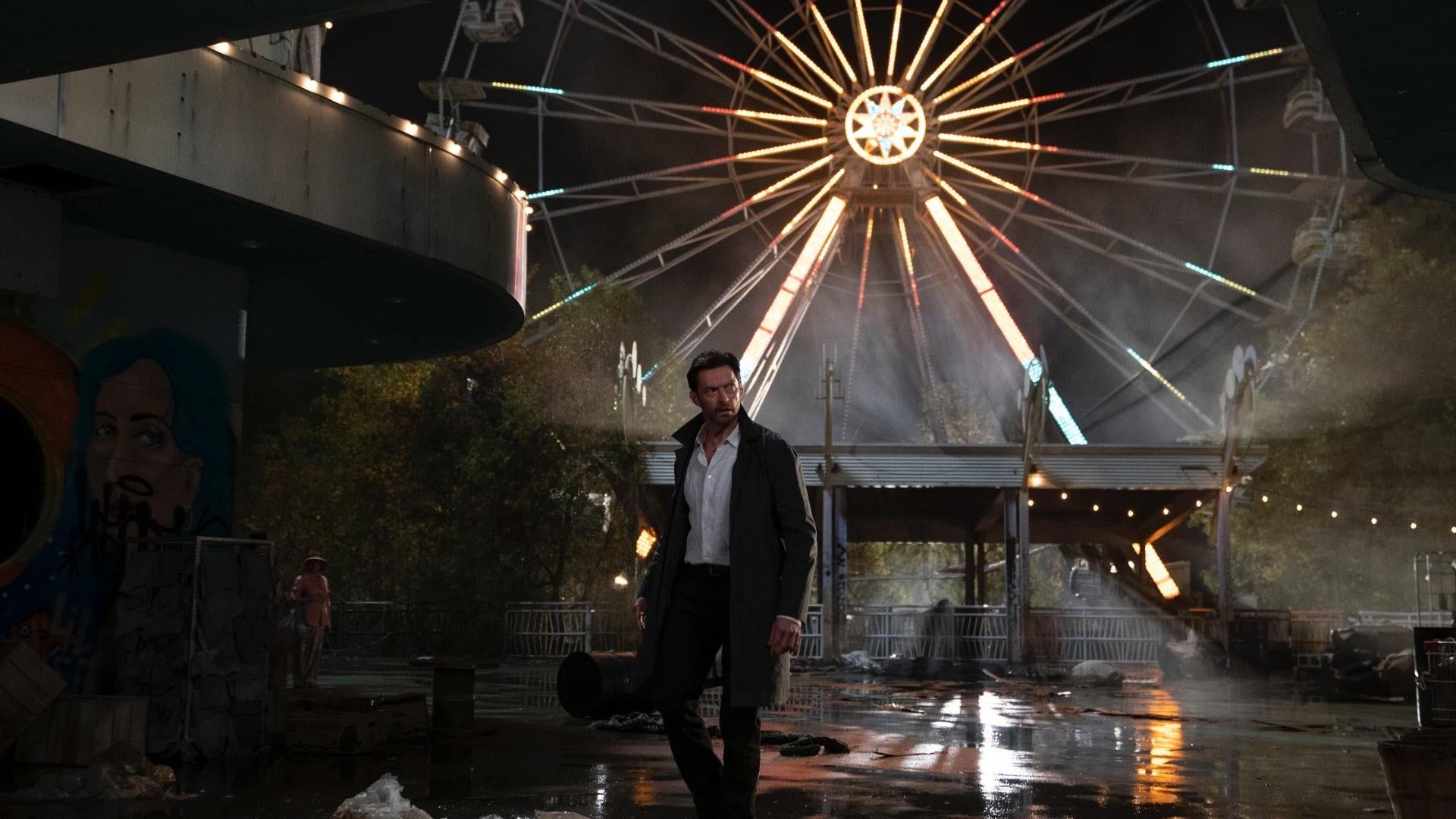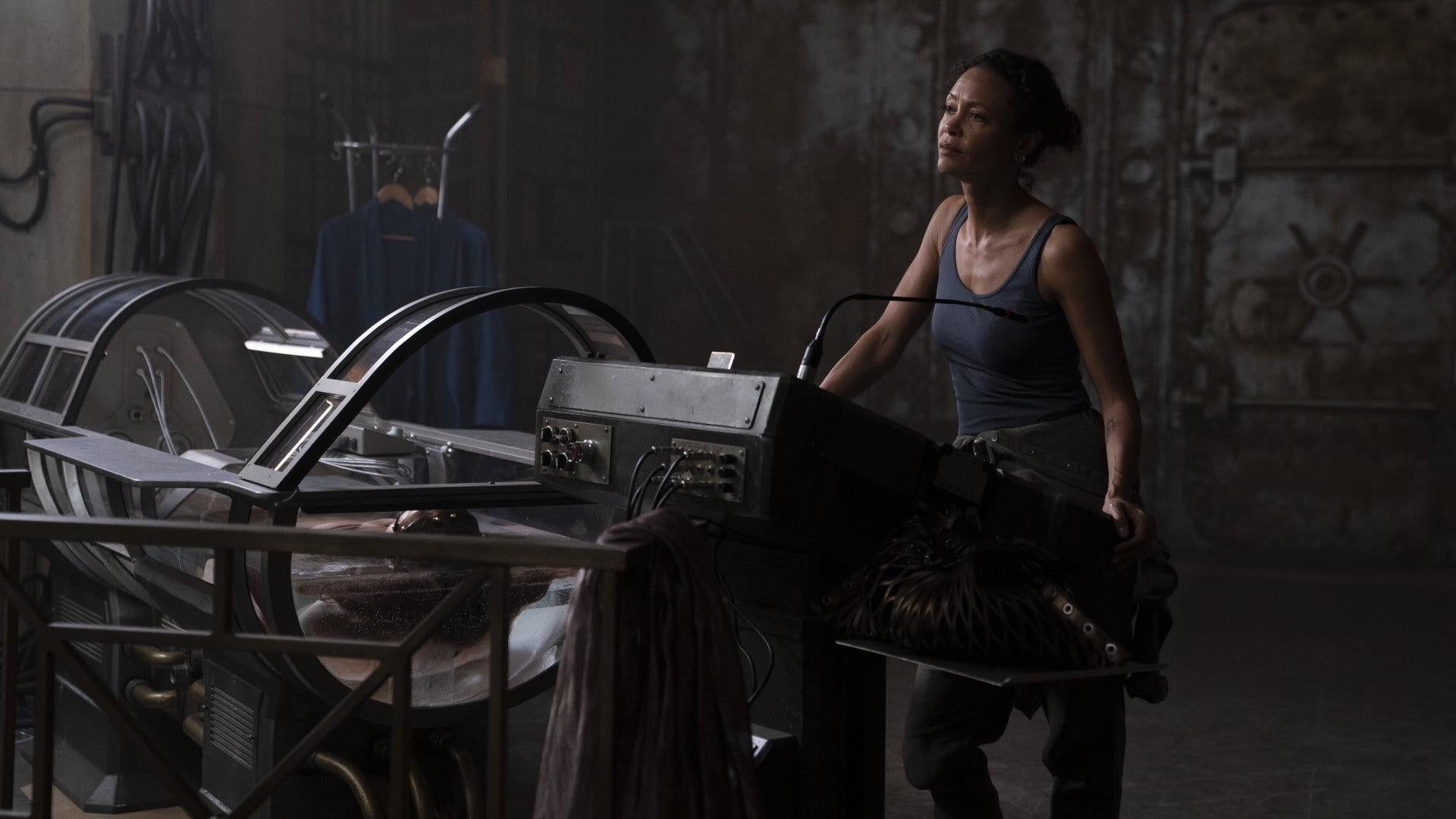Reminiscence, the feature film debut of Westworld co-creator Lisa Joy, attempts to be too big for its own good. It’s a sci-fi noir that’s jam-packed with thought-provoking, cool ideas, genres that don’t normally mash together, incredible actors, and gorgeous visuals. Yet little of this ends up coming together in a way that makes sense or satisfies. There’s plenty of potential, but ultimately, a disjointed nature holds it back.
In Reminiscence — written and directed by Joy — climate change has submerged much of the world underwater, completely flipping life on its head. It’s too hot to be outside during the day so people sleep in the light, go to work at night, and find solace and comfort in reliving their old memories — often featuring loved ones long gone or good times on dry land.
Nick Bannister (Hugh Jackman) specialises in this technique and to do it, he and his business partner, Watts (Thandiwe Newton), put people in headgear, give them a special injection, and then submerge them in a water tank. One day, a woman named Mae (Rebecca Ferguson) walks in for the service and Nick quickly falls for her. Their relationship leads to all the characters getting tangled up in a twisted, film noir-inspired web.
At the start, you can’t help but be mesmerised by the world Joy has created. As both writer and director, she’s conceived not just a grounded, believable sci-fi premise. Within the complex world-building and layered themes, she unravels a mystery — first pulling us into what seems like a touching, growing romance between Nick and Mae, only to flip the narrative into a whodunit as Mae disappears without a trace. It’s compelling.
However, once Nick decides he’s only going to focus on finding her, everything about Reminiscence that distinguished it gets pushed to the side. The once unique universe takes a back seat to a man’s obsession with finding this woman. The surprising particulars of technological wonders and climate dystopia begin to feel ordinary and expected, window-dressing for a fairly common pursuit.

Even when the well-grooved story premise is meant to be punctuated with some big twists and turns, those too are so predictably telegraphed, they lose all power. Let’s face it, if you introduce a seemingly unimportant character who happens to be played by a recognisable actor (say like Fear the Walking Dead’s Cliff Curtis, Joker’s Brett Cullen, or Westworld’s Angela Sarafyan), there’s a very good chance that character is going to end up being more crucial to the plot than their initial short scene in the background suggests.
Visually, Reminiscence follows a similar pattern. When the film is showcasing its very own water world, or diving into someone’s memories, there’s lots of anticipation and intrigue. Paul Cameron’s cinematography combined with Howard Cummings’ production design add to that by expertly sprinkling beauty within the world’s decay. However, big chunks in the middle of the film get away from that and take place in bars or apartments that seem as likely in our world as the one of the film.
Huge, sprawling establishing shots and gorgeous practical underwater shots seem to fade away as Joy hones in on the burgeoning mystery.
Jackman and Ferguson are solid in the film but don’t really stand out except for the fact that they’re the stars, coasting by mostly on their natural talent and charisma. Newton has the most to work with as Watts, thanks to a layered backstory that dives into her family history and struggle with alcohol. As a result, she gives the film’s best performance that simultaneously overshadows the main characters while adding a few debilitating, seemingly extraneous tangents to the overall film.

Actually, debilitating, seemingly extraneous tangents are some of Reminiscence’s other key characteristics. Several scenes or subplots — like some intricate hand-to-hand combat or dialogues about a war that happened when the waters began to rise — pivot away from the centre and leave your head spinning. There’s a ton in the film about Mae’s past, a powerful local family, all of which fit in terms of the story, but end up being almost too much to consider and think about. When the film adds something new, it almost always distracts from what matters: this world and the relationships between Nick, Mae and Watts.
While there are plenty of things to like about Reminiscence, there are probably an equal amount of things to not like. As a result, the movie feels less like a singular story and more like a jumble of missed opportunities. It’s a bit too dense and overwhelming to all work together. However, that ambition, while slightly misguided, does earmark Lisa Joy as a filmmaker to watch. She’s got plenty of guts to even attempt a movie this big and this original, and though it didn’t quite work out, you won’t be mad you watched it. You just won’t be recommending to many friends either.
Reminiscence is now showing in Australian cinemas.
